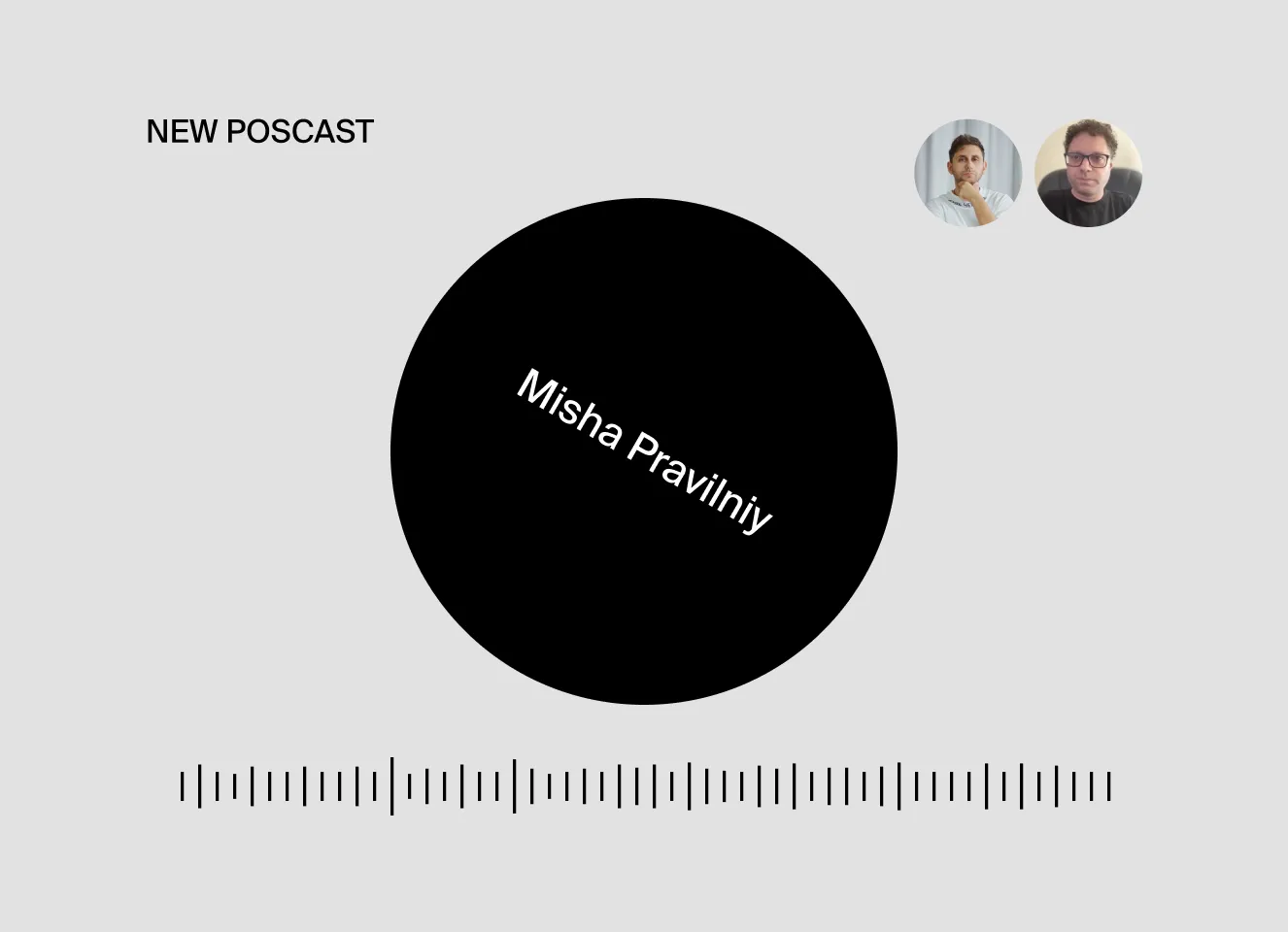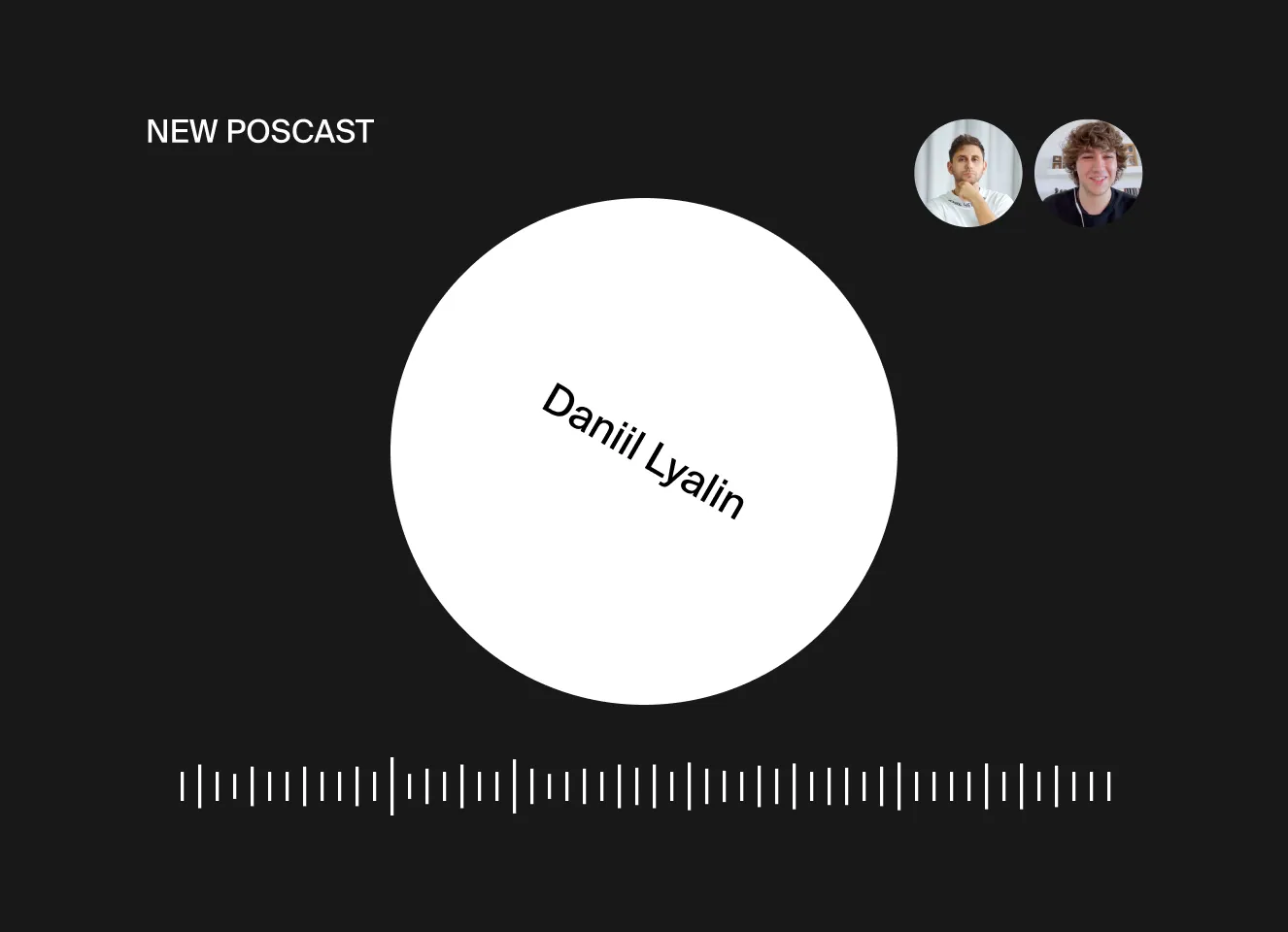Video
What’s going on here?
In the latest episode of the 3 Tales Podcast, we chatted with a special guest, Misha Pravilniy. Misha is a famous Ukrainian rap artist known for his sharp social text. He’s also the creative director of the software development company KITRUM.
Discover how he skillfully merges his IT career with his passion for music, explore the impact of AI on the music industry, and discover why AI will never replace actual creators. This episode is essential for music enthusiasts, tech professionals, creative minds, and anyone interested in the intersection of technology and the arts. Gain insights and practical advice on balancing multiple career paths and staying ahead in an evolving landscape.
Music gets along with IT
Misha Pravilniy discusses how rap, IT, and AI come together. He emphasizes that while technology can help with creativity, it can’t replace the deep emotions in human art. Misha explores how AI affects music production and industry and stresses the importance of genuine expression. Many artists find that making music helps them feel better, especially during tough times.
When artists combine their creativity with technology, they can form unexpected partnerships. Technology in the music industry can bring about new and creative solutions. Still, it also presents challenges for traditional artistic expression.
Many Ukrainian artists have multiple jobs, often in music, technology, or engineering. The trend reflects the economic realities and how the music scene is changing. The conversation shows how engineers and rappers can collaborate, creating unique art that appeals to many people. This collaboration can benefit both fields and reach diverse audiences.
Adapting to challenges is crucial for many industries, including music. Creativity and technology overcome obstacles and promote growth. Music creators can succeed by balancing passion, side jobs, and evolving business practices.
Engineers in the music industry need to understand how technology and creativity combine. They must also manage complex data and build relationships to drive innovation.
Utilizing technology can enhance business operations, as demonstrated by a company’s success in the music industry through creative problem-solving and innovative services. Technology fosters collaboration and client relationships. Understanding the intersection of technology and creativity in the music industry is crucial for engineers. They must navigate complex data management while fostering relationships to drive innovation.
Can AI-driven recommendations destroy streaming platforms?
The role of metadata in music is important. Each song has metadata items that must be stored and analyzed well to keep the data accurate.
The speakers discussed Jimmy Iovine’s significant impact on the music industry. The case shows the importance of recognizing business opportunities and artistic talent. Iovine worked with Steve Jobs to change how music is sold using platforms like iTunes.
AI-driven algorithms transform the music industry, helping listeners discover new artists and create personalized playlists. AI algorithms are essential for platforms like Spotify and TikTok. They customize music recommendations based on individual tastes and listening habits, keeping users engaged. New AI developments make us think about how musicians can express their original ideas and whether they need streaming platforms.
Is AI a threat or a bonus for music?
The increase in AI-generated music has caused debates among artists about who owns and earns royalties for the music, especially after the Drake and Weekend track went viral. The conflict between TikTok and Universal Music Group illustrates the challenges of monetizing AI-generated content. In April 2024, a coalition of artists expressed their concerns regarding AI tools, demanding fair compensation for generated tracks.
It’s important to consider how AI and music can work together. These cases raise questions about creativity, ownership, and how the music industry is changing. People must find a balance between new ideas and traditional music-making methods.
By 2050, everyone can create music, regardless of their talent or voice. Advances in technology will make music production faster and more efficient. The focus will shift from musical skill to the song’s message, which could change the criteria for what makes a song popular. Democratization will redefine what it means to be a successful musician.
AI can’t replace humans because it can’t truly feel emotions like pain. AI can imitate emotions but can’t fully understand them. If artificial intelligence ever gains the capacity for genuine emotions, it could lead to unpredictable behaviors and pose significant risks to humanity.
The discussion highlights the need for countries to work together to tackle challenges posed by advanced AI. People from different languages and cultures must collaborate to handle possible future issues.
Tune in to the full episode to learn more.







